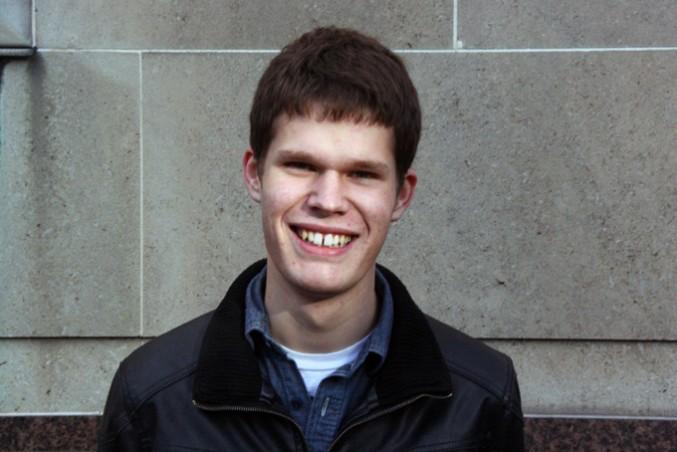By Mitchell Thompson
It’s almost a cliché.
When we reach university age and, for the first time, spend the majority of our time away from where we grew up, people of alternative genders or sexual orientations can safely grow and explore.
They will hopefully meet more welcoming, open minded people and will feel comfortable with who they are or who they want to bang.
RyEquity’s Tumblr page says, “Living in Toronto, a city widely known as the most diverse city on the planet, offers Ryerson’s LGBTQ students and their allies an amazing variety of community resources that are conveniently close-at-hand and extremely helpful.”
But, what sets Ryerson apart, among other things, is that it’s a commuter school.
Though we have an LGBT friendly campus and (hopefully) open-minded friends, many of us return to where we grew up every night.
This changes the way the University affects LGBT students. The change is not always bad, but it’s a factor.
I’ve experienced this first-hand as a gay commuter.
The last time I was asked where I was from, the response was, “Oh, well, I used to work there, they fired me when I found out I was gay.” It sounded plausible.
This was present in my mind a few weeks ago, when election signs were still up and I cut through a trashier area on my way home. Looking at a row of conservative lawn signs, I took off the “Proud New Democrat” badge I’d picked up downtown, because I knew the area and didn’t want a confrontation.
This is not too far from École Secondaire Catholique Sainte-Famille, the sight of a well-publicized LGBT human rights complaint. A few years back, a gay student put up a poster with a benign Harvey Milk quote about how equality is good, without permission. The posters were torn down the next day. The case settled a few months ago.
When I finally got onto my street, a “PRO-LIFE” bumper sticker on a passing car threw me off.
More alarming was my next door neighbour’s lawn sign for then-candidate Jagdish Grewal, who had been dumped after his op-ed about the virtues of gay-conversion therapy surfaced and on top of that we are not even in his riding.
I was tempted to kick the sign on my way in. (The sign was later changed to the less-overtly homophobic conservative in our riding. He lost the election, suggesting that my town isn’t all bad.)
Splitting this with downtown creates a kind of double-life
It’s hardly the romantic image of the gay student, comforted by progressive people and attitudes on campus that we’re sold.
One might argue that this is only a problem because I’m still living with my parents and being a freeloader. Though, I doubt many of you are in a position to criticize.
But, even if the difference isn’t huge, the fact that so many of our students live so far away from campus probably changes our LGBT community. We’re here, we’re queer and we have to leave soon to get home at a reasonable time.
Many of us go back to the suburbs where the effects of the Ryerson climate with its emphasis on LGBT positive spaces and, at very least, the sheer number of rainbows, are counter-acted.
There are still queer and progressive elements in the suburbs, it’s just spread a bit more thinly. Though, it is spread a bit too thin in my neighbourhood…at least for my liking.
Nevertheless, this is the queer experience of a growing number of LGBT people. It will probably keep growing as living downtown keeps getting harder.
This means spreading those queer ideas may not just be preferable, but they might be essential. As we get pushed out of the city, we’ll have to figure something out.
We’ve got to get by somehow and the idealist in me thinks that maybe, instead of complaining about the suburbs, we can spread these ideas around.
Mitchell Thompson is a second year journalism student. He will be writing a regular queer affairs column for the Eye.












Leave a Reply